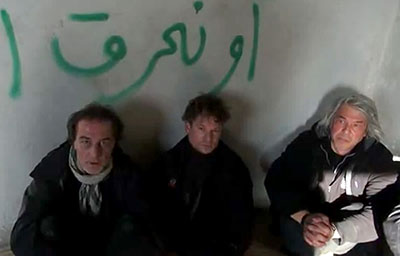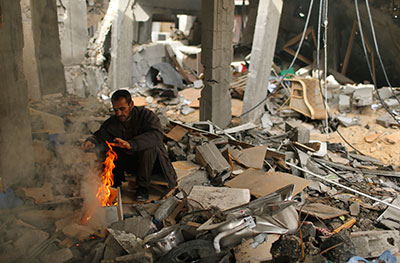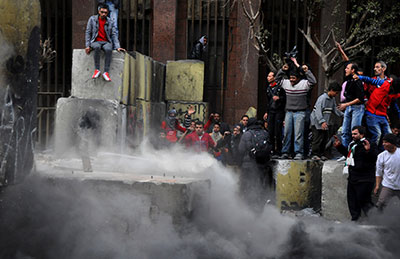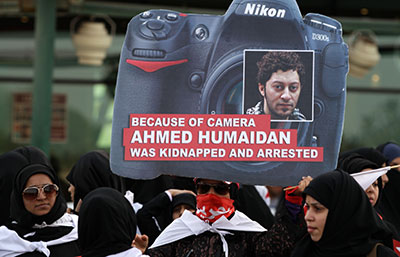
Do news blackouts help journalists held captive?
At any given time over the past two years, as wars raged in Libya and then Syria, and as other conflicts ground on in South Asia and sub-Saharan Africa, a number of journalists have been held captive by a diverse array of forces, from militants and rebels to criminals and paramilitaries. And at any given…

Israel fails to support decision to target Gaza journalists
After two months of asking Israeli authorities to explain their decision to attack journalists and media facilities in Gaza in November, CPJ has received an official response. Our inquiries–in the form of a letter and blog by Executive Director Joel Simon, as well as phone calls and emails to the office of the Israeli prime…

In Syria, the quandary of freelance news coverage
Forces on all sides of the Syrian conflict that have tried to censor news coverage through violence have won a round. By sharply increasing the risk for reporters covering the civil war they have forced news organizations to think twice before sending their staff to the battlefields. In a worrying development they even have led…
Video: Free imprisoned Iranian journalists
In late January, Iranian authorities waged the largest crackdown on the press since 2009, detaining a wave of journalists and issuing arrest warrants for numerous others. The Ministry of Intelligence accused the journalists of conspiring with foreign media to repeat the alleged “sedition” of 2009, referring to electoral fraud exposed by the media and the…
Journalist Assistance helps record number in 2012
An increase in press freedom violations last year created a surge of need among journalists, driving a record number of assistance cases for CPJ’s Journalist Assistance Program in 2012. More than three-quarters of the 195 journalists who received support during the year came from East Africa and the Middle East and North Africa, reflecting the…

Will Israel respond to query on targeting Gaza journalists?
On December 2, CPJ sent a letter to Israeli Prime Minister Benjamin Netanyahu requesting an explanation for airstrikes on media facilities during the November 2012 military action in Gaza. The strikes damaged two media buildings and killed and injured a number of journalists. Israeli officials said the military targeted terrorist infrastructure, but provided no explanation…

Two years on, Mubarak’s tactics still haunt Egypt media
On the second anniversary of Egypt’s January 25 revolution, Hosni Mubarak’s footprints are still present in many areas of the public sphere–and media are no exception. President Mohamed Morsi needs to cease using Mubarak-era tactics of silencing his critics with criminal charges such as defamation.

